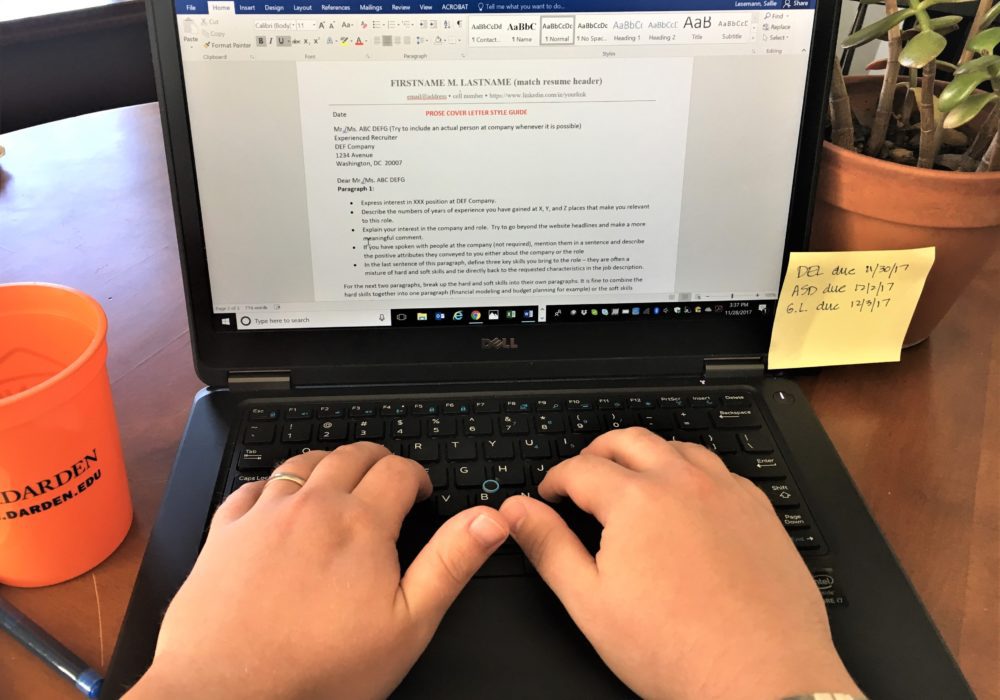When it comes to job applications, the cover letter is often met with the most dread from applicants. The conventional wisdom is that no one reads cover letters and they don’t matter. However, we’ve also worked with enough clients to know that there are at least a few hiring managers who not only read the cover letter, but also bring it to the interview and discuss it.
The best way to think about cover letters is as another opportunity to position yourself for the role. If resumes are an opportunity to talk about your results and accomplishments (as we discussed in a recent blog), then cover letters are the opportunity to address the skills you bring to the role. When you read a job posting and see those lengthy lists of required experience and skills, then this is your chance to make your case for how you are the perfect fit. The best part about positioning yourself for the role is that this is the bones of interview preparation, so you may end up a few steps ahead in preparation work!
In our Armstrong Center for Alumni Career Services cover letter style guide, we discuss the two different formats of cover letters that we see MBA Alums using: prose and bullet. Either format is fine, so it often comes down to personal preference and style.
So how can you make cover letter writing an easier and less onerous task?
- Either format you choose, the introductory and concluding paragraphs are very formulaic. You want to highlight interest in the company and role, mention any contact you have had with employees and information that you have learned from those conversations, and then make the transition into why you are a solid fit for the role based on the skills that they are requiring.
- For the prose format resume, you will have two major paragraphs — one for hard skills and one for soft skills. The skills will start to repeat themselves and you should start to be able to leverage previous cover letter paragraphs for future job applications.
- For the bullet point format resume, you will start to notice that the same key skills keep popping up in job postings. Eventually, you can then come up with five or six skill paragraphs that you can swap in and out of cover letters as the job posting requires.
There are two keys to successful and less frustrating cover letter writing:
- Position your skills and experiences in a format that is very easy for someone scanning the letter to quickly identify you as a fit without having to spend much time closely reading the letter.
- Make the process repeatable and formulaic enough that you aren’t spending eons crafting a cover letter.
Now for common questions:
- If it says cover letter optional, do I need to submit one?
Yes, for many reasons, but mostly because it shows you made the effort.
- Can I expand on to a second page?
No, cover letters should never be longer than one page.
As always, if you are a Darden alumnus or alumna with any questions or would like to discuss your career progression or applications, we’d love to speak with you! Please contact us for an appointment.





